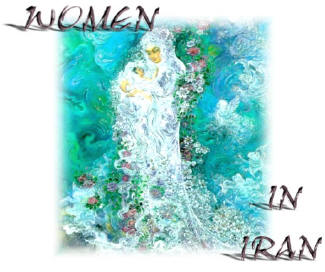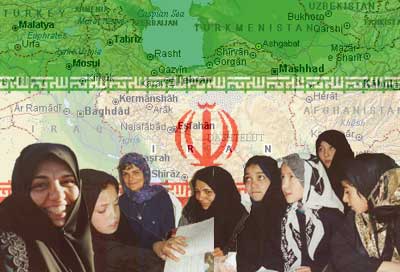| Home Page
About Page
Photo Page
Contact Page
Favorite Links
|
|
 |
Women's Political Involvement in Iran
The women of Iran want equality, respect and the right to participate in all social, political and economic activities. They want to live their lives productively and with dignity. Throughout the 20th Century Iranian women have organized and fought bravely for human and political rights, from the Constitutional Revolution at the turn of the century to the democratic movement that overthrew the Shah of Iran. |
created by Henry Amaya
Why I chose this topic:
To begin with, I wanted to write about women overall in Islamic countries. But that was too broad of a subject and decided to limit my topic to one country. Iran was my first choice, for the Iranian women have endured many years of struggles and mistreatment. This website will try to explain why the women of Iran became politically involved and the outcomes. Please note that this website only provides a brief explanation of the continuous struggle endured by the Iranian women. I tried to be as accurate as possible with the information portrayed on this website. If you feel anything is incorrect, do not hesitate to let me know. Thank you.
|
Welcome:
Thank you for visiting this website. It was created in order to accurately project the struggles and achievements of Iranian women throughout the past couple of decades and also as a project for my fascinating Government 444 class. I am a student at George Mason University in Fairfax, VA. I am not from Iran, but have much admiration and respect for the women of Iran. Please feel free to e-mail me with any comments. Thank you and enjoy the site. |
Comments:
hamaya@gmu.edu
|

In Islamic countries, it's the custom that women should dress modestly and keep their hair covered. In Iran, it's called 'hijab'.
In the time of the first Shah, in the 1920's and 30's, there was a push to modernize the country. Hijab was banned. But many Iranian women revolted and refused to go out if they couldn't wear what they saw as traditional, modest clothing. The ban was modified.
|
|
|


